We like Nudists, Voyeurists, and Exhibitionists. We don’t like Seeists.
What’s your insecurity? More than likely, a body part comes to mind. Hairline. Nose. Skin blemishes. Balls. It’s hard not to succumb to the negative emotions around our insecurities, and let them stop us from living life fully. Some people practice nudism in rebellion against the arbitrary societal assignment of “good” versus “bad” appearance. Screw all the bullshit of a good versus a bad stomach – a body is a body is a body. And all men’s bodies are welcome on Everything To Sea trips. We love the way this article from AlmostWild.com goes further into this topic.
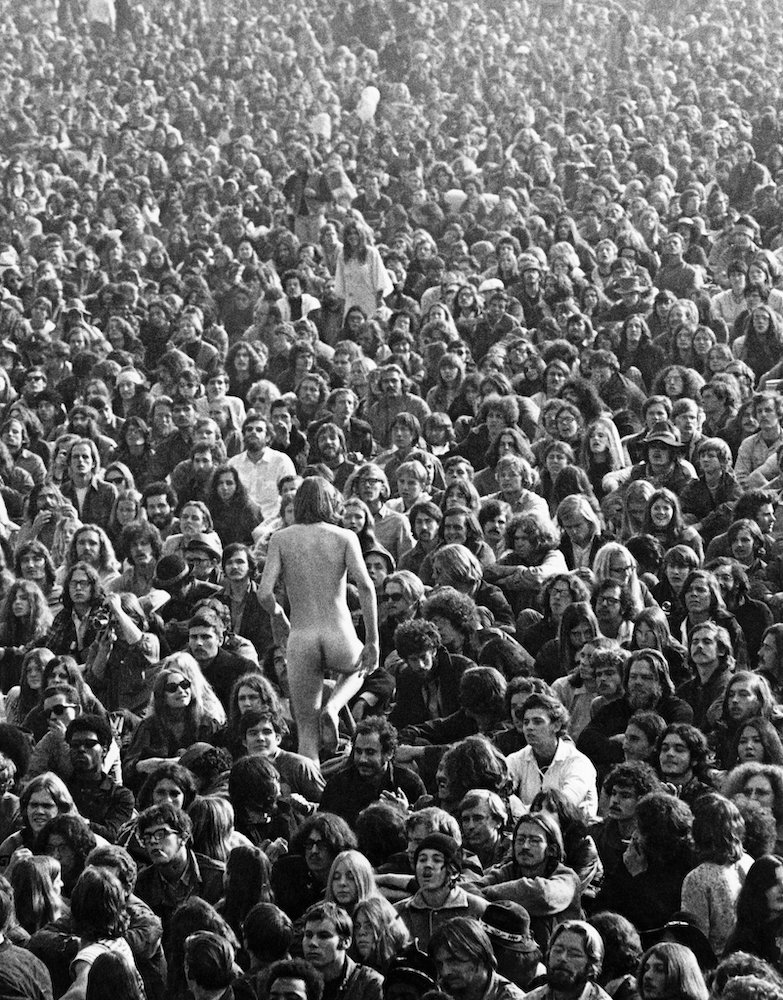
Last year, after my first visit to a nudist ranch in Southern California, I mentioned to a close, non-nudist friend of mine that I’d just gotten home from a day spent hiking and swimming at a nudist club, to which she responded, “I could never do that! Not unless my body was like… perfect!”
Caught off guard, I didn’t really know how to respond in the moment. Obviously that’s not a prerequisite to visiting a nudist venue, but it’s also difficult to dispel those deep-seated insecurities with a quick comeback. Besides, we laugh together about everything and we respect each other for having different views, so who am I to tell her how to feel about her body?
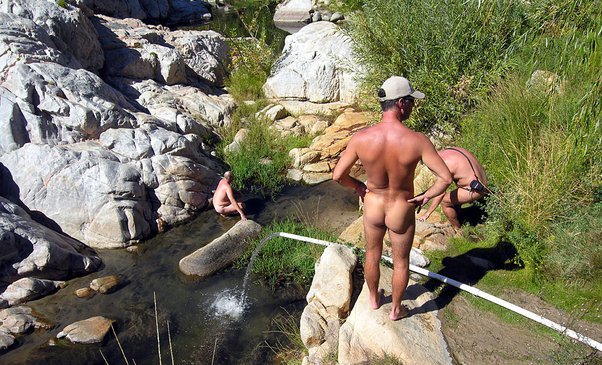
It’s also such a common train of thought: Everybody has a body, but not every body should be seen. Not those bodies. Certainly not my body. You hear it every day.
Whether it’s the response to Britney Spears posting nudes on Instagram or a newspaper article about your city’s next World Naked Bike Ride or public discourse over “gratuitous” nudity in whatever new HBO series is currently airing or the punchline of a joke in some new movie or sitcom, throwaway comments about whose bodies should and should not be seen, which bits should stay hidden and which we can tolerate are unavoidable.
From comments like, “nobody wants to see that,” to remarks about saggy breasts and floppy penises and fat rolls and wrinkles and knobby knees, it comes in the form of a universally shared inside joke at best, feigned outrage and vitriol and personal attacks at worst.
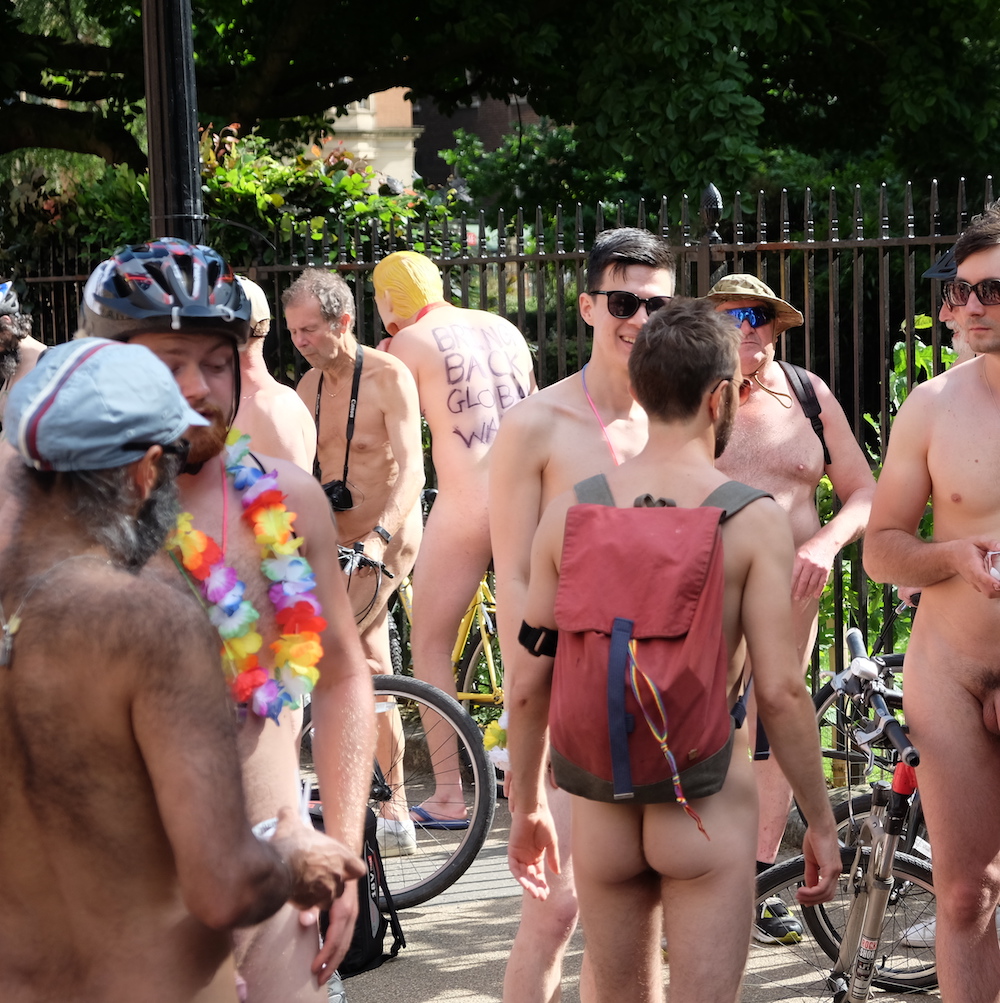
The comments are usually thoughtless, not made with any intention of malice, not made with any real goal to shame others’ bodies. If anything, they’re more a way to signal to others that, fear not! We, too, conform to social norms! We, too, know the rules and repeat the stigmas we’ve been taught! Fine. But the message remains clear, even if unconscious: Certain people with certain bodies don’t deserve to be seen. And so we simply perpetuate a system in which we never really see one another.
Worse yet, the bodies that we accept as worthy of being seen nude are often not merely tolerated, but demanded, objectified, sexualized, and commodified, highlighting the contrast between “bad” bodies and “good” bodies, between bodies that should never be seen and bodies that the public feels entitled to see and consume. There’s almost no middle ground to just exist in one’s own skin.
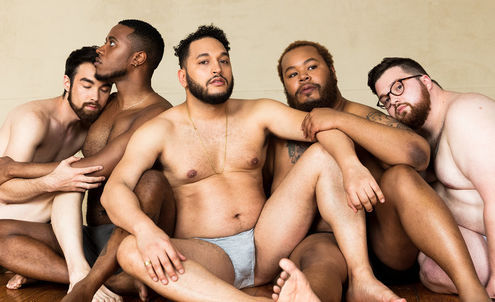
I admit that, being a nudist, I may be biased, but I find that an incredibly sad way to think not only of others but of ourselves. I think most nudists would agree that overcoming the fear of being seen nude and of seeing others nude changed them, changed who they are and how they perceive themselves and others. That has been my experience, anyway, and I cannot count how many other nudists I’ve encountered who have excitedly, emphatically shared that same experience.
So, is that what being a nudist or a naturist is about? Seeing and being seen?

Not quite. Nudism is not about seeing others naked or being seen naked, per se, but I also think it would be disingenuous to say that seeing and being seen are not part of what makes nudism so liberating and empowering. Overcoming the fear instilled in us throughout our upbringing and, for many of us, throughout much of our adult lives, by confronting head-on the anxiety associated with being nude in front of others is one part of it. Another part of it is a very sincere curiosity and a very human desire to know others and to be known for who we are, to be vulnerable, to be acknowledged and accepted and, yes, seen. Not seen for the sake of exhibition or attention. Not seen to show off or flaunt. Seen in order that the truest version of ourselves, warts and wrinkles and wounds laid bare, might be accepted and celebrated.
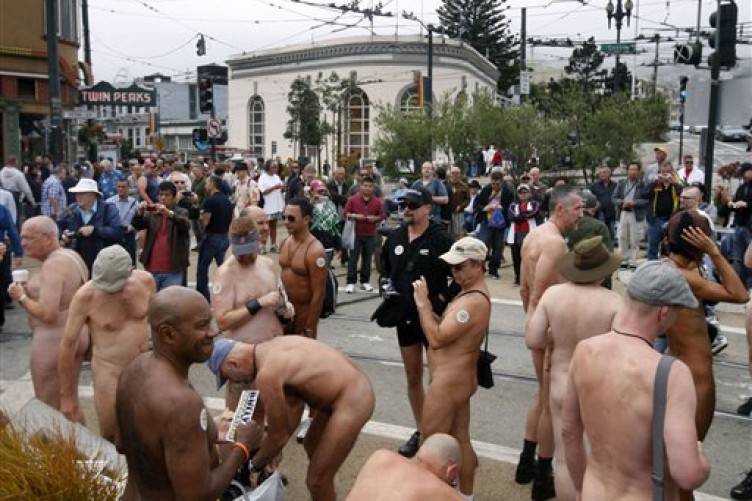
I don’t believe that nudists yearn to see naked bodies for the sake of seeing naked bodies, or that we yearn to put our naked bodies in front of others for the sake of having our naked bodies be seen. We already know what naked bodies look like; the novelty of undressing wears off fairly quickly. There’s something else there, though, because we do, generally, still yearn to be in the company of others without our clothes on. Were that not the case, we would content ourselves with lives of privacy and solitude, but privacy and solitude look and feel a lot like shame or oppression once you’ve known social nudity. It’s the company of others, the shared joy, the lowered guards. It’s seeing one another not for the way we’ve been socialized to dress but for who we are underneath. And, for some, maybe it’s something else entirely.
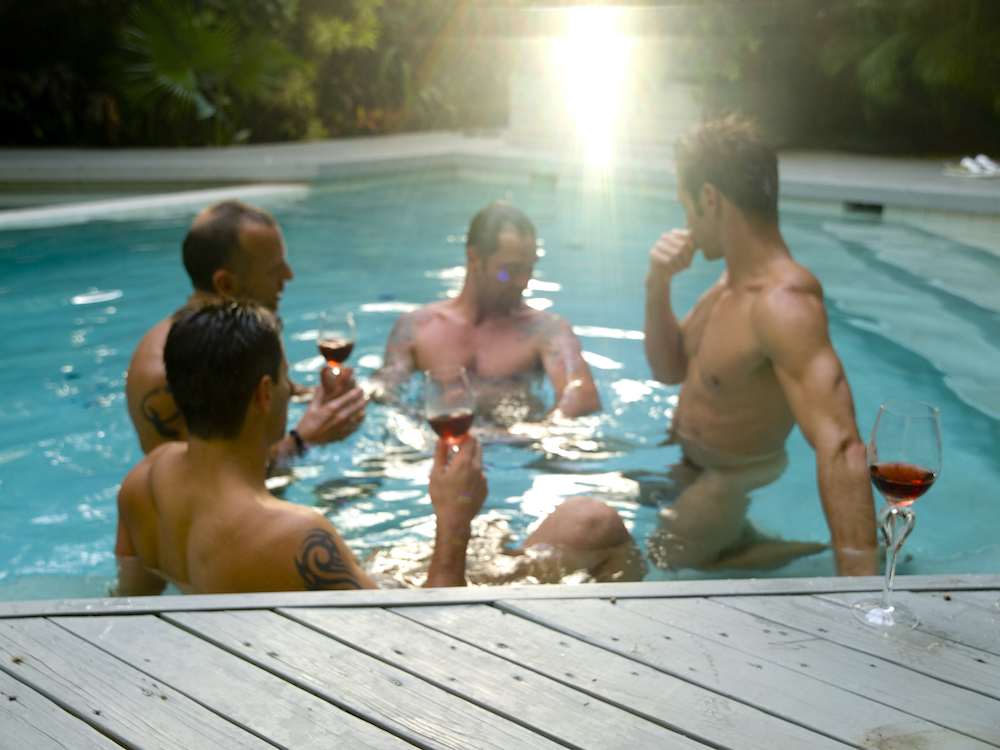
Perhaps that’s what makes me most sad about the “nobody wants to see me/you/them” comments. Because it’s not just about the body that’s being seen, it’s about the person being seen and understood and accepted. And I’m here to tell you that you do deserve to be seen for who you are and you do deserve to be known and vulnerable and celebrated for all of your parts and imperfections and uniqueness. I’m here to tell you, I want to see you. Not your breasts or your penis or your naked butt, but you comfortable in your skin and alight with joy and curiosity. Not for my sake, but for yours.
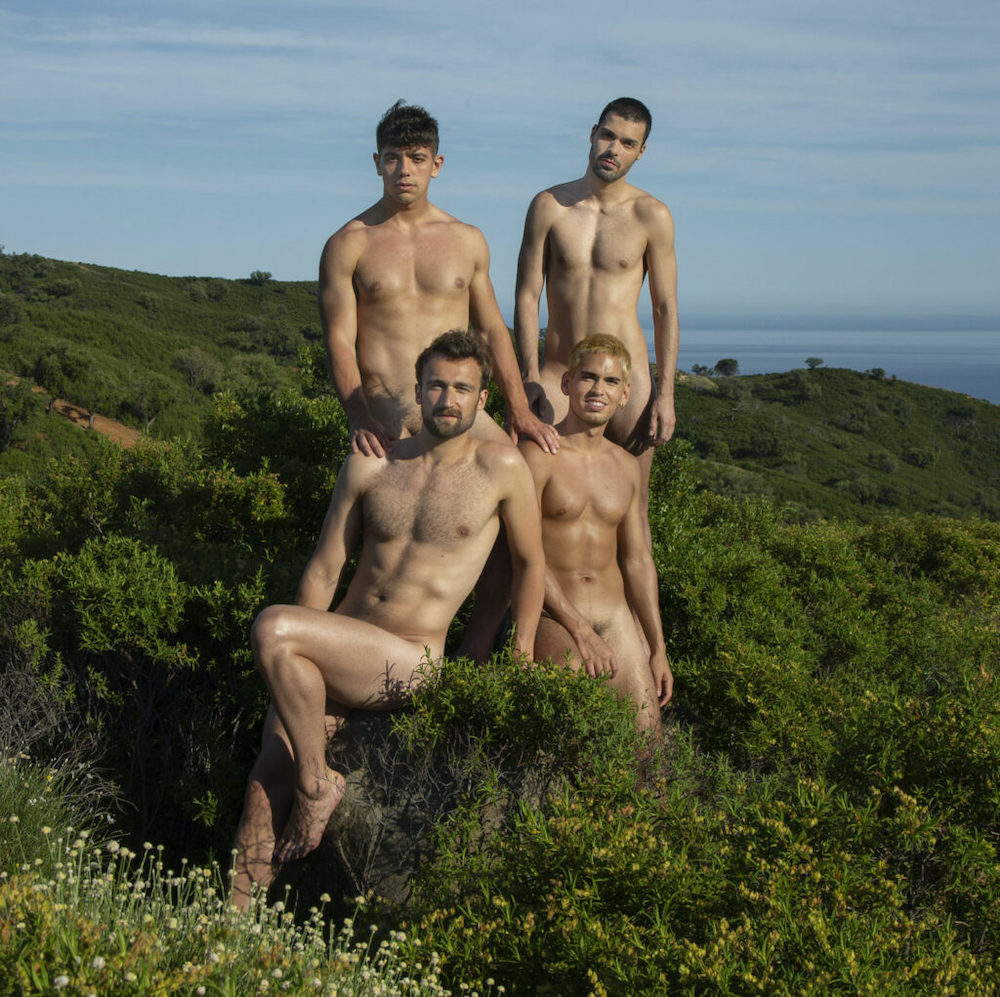
The next time I hear a friend say that nobody wants to see them nude, or that they don’t want to see someone else nude, maybe I’ll speak up. Maybe I’ll say, “I do.” Maybe I’ll ask, “Why not?” Or maybe I’ll smile like I usually do, like I’m in on the joke, like bodies are icky, wishing I could change their mind. Either way, I hope I can at least lead by example, without judgment or shame.
Has nudism helped you overcome any insecurities? If you feel called to share, let us know in the Comment Section below.

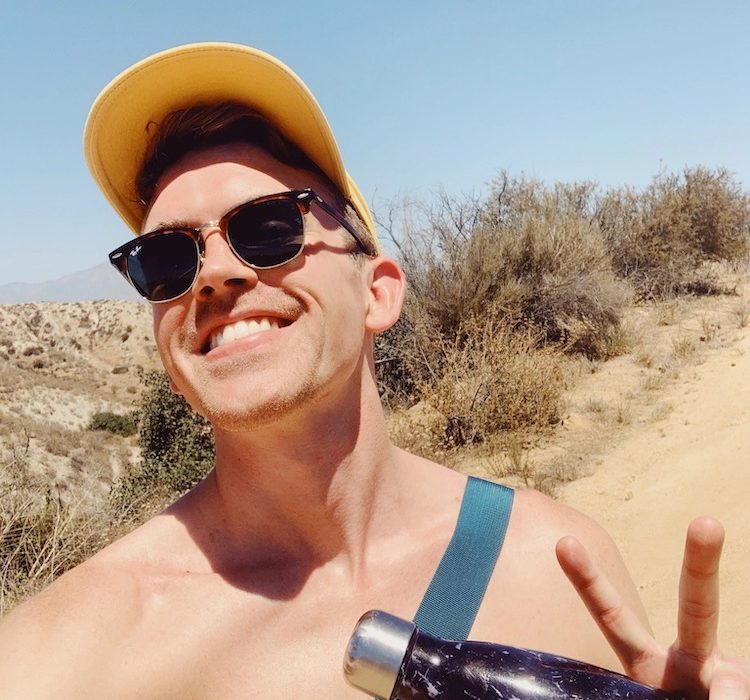
Félicitations pour cet article. Quoi dire de plus si ce n’est que je me sent plus proche du naturisme que du nudisme, même si la différence est mince.
pour moi le naturisme, c’est vivre au plus prêt de la nature, le plus en harmonie avec elle. Il est évident que lorsque je suis dans ma maison ou un autre espace clôs artificiel je suis plus nudiste que naturiste.
Ce que j’essaie d’expliquer à mes proches, famille, collègues et amis c’est que le vêtement n’est nécessaire que pour se protéger: du froid, d’un soleil trop intense, lors de certains travaux. Comme c’est bien dit dans l’article, “un corps est un corps”. J’espère toujours que la loi évoluera en France où l’on ne distingue pas la simple nudité de l’exhibitionnisme. L’Espagne est beaucoup plus claire sur ce sujet. Qu’en est-il aux Etats Unis ?
Hi Pierre,
Parker here, Captain of Sales. We’re happy to read your thoughts on what naturism means to you. Living more in harmony with nature is a great way to describe it… I think you’d fit right in on one of our trips!
Also, I hope it’s ok I’ve translated your comment to English in case anyone else is curious:
“Congratulations for this article. What more can I say except that I feel closer to naturism than to nudism, even if the difference is slight.
For me, naturism means living closer to nature, more in harmony with it. It is obvious that when I am in my house or another artificial closed space I am more nudist than naturist.
What I try to explain to my relatives, family, colleagues and friends is that clothing is only necessary to protect themselves: from the cold, from too intense a sun, during certain works. As it is well said in the article, “a body is a body”. I still hope that the law will evolve in France where we do not distinguish simple nudity from exhibitionism. Spain is much clearer on this subject. What about in the United States?”
I think your comments are right on.
Glad to hear they struck a chord with you… Thanks for reading! Hope to sail naked with you someday. – Parker, Captain of Sales
Your essay speaks loud and clear of Truth. It resonates deeply and I hope it helps folks accept themselves exactly as they are and ends the fear and shaming that is so prevalent in our society, especially when it comes to the bodies we inhabit. I personally find nudism—whether in the privacy of my home or in a clothing optional situation—liberating, fun, adventurous, and swimming against the stream of what is unjustifiable labeled as taboo.
There is so much well said truth in this article. Thanks for reinforcing my feelings about being naked in social settings. I’ll be spending a week at the naturist village of Vera Playa this summer and I’m looking forward to the freedom and connecting with other like minded souls.
Keep up the good work.
Thanks for your thoughts!!!